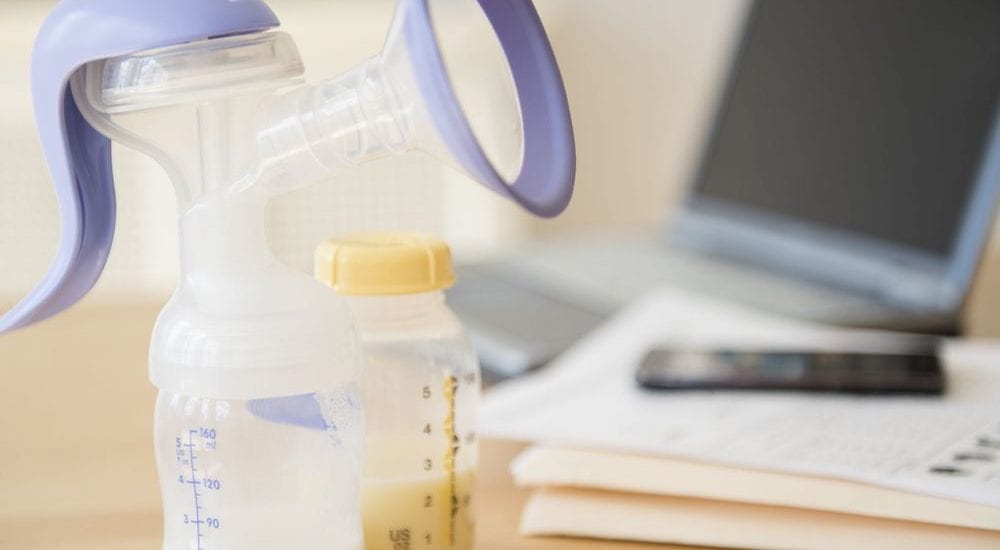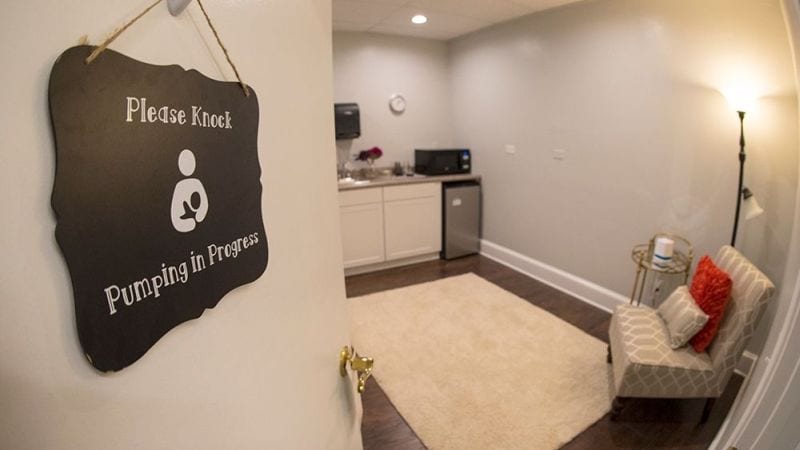New Lactation Accommodation Rules for 2020
- December 17, 2019
- Posted by: flores
- Category: flores blog

New Lactation Accommodation Rules for 2020
Source: California Employers Association
California law has required employers to provide reasonable break time and a location, other than a bathroom, for employees to express breast milk in private. Now, a new California Law for 2020, SB 142, imposes important new employee lactation accommodation requirements. This new law requires the location to have certain mandatory features, requires employers to have a lactation accommodation policy, changes the ability to claim an exemption, and expands the available penalties.
Expanded Location Requirements
SB 142 continues the current requirement for employers to provide a lactation location other than a bathroom, in close proximity to the employee’s work area and allow the employee to express milk in private.

The new law specifies additional requirements. The room or location must:
- Be shielded from view and free from intrusion while the employee is expressing milk.
- Be safe, clean, and free of hazardous material.
- Contain a surface to place a breast pump and personal items.
- Contain a place to sit.
- Have access to electricity or alternative devices, including, but not limited to, extension cords or charging stations, needed to operate an electric or battery-powered breast pump.
The employer must also provide access to a sink with running water and a refrigerator suitable for storing milk in close proximity to the employee’s workspace. If a refrigerator cannot be provided, an employer may provide another cooling device suitable for storing milk, such as an employer-provided cooler. An employer may comply with SB 142 by designating a lactation location that is temporary, due to operational, financial, or space limitations. These temporary spaces must not be a bathroom and must be in close proximity to the employee’s work area, shielded from view, free from intrusion while the employee is expressing milk, and otherwise meet the legal requirements.
When a multipurpose room is used for lactation, lactation purposes must take precedence over the other uses for the room. Keep this in mind if you designate a meeting room as a lactation location.
Number of Breaks
Today, the law states that an employer must provide a reasonable amount of break time to allow employees to express breast milk. The break time, if possible, should run concurrently with any break time already provided to the employee. In other words, if possible non-exempt (hourly) employees will use their rest breaks. Under SB 142, the law specifies that the break time must be provided each time the employee has a need to express milk. Break time that does not run concurrently with authorized rest time is unpaid.
Mandatory Policy
SB 142 requires an employer to have a policy on lactation accommodation. The policy must be distributed to all new employees at the time of hire and also when an employee inquires about or requests parental leave. The policy must provide:
- A statement about an employee’s right to request lactation accommodation
- The process by which the employee makes the request
- An employer’s obligation to respond to the request
- A statement about an employee’s right to file a complaint with the Labor Commissioner for any violation of the law
Exceptions to Requirements
SB 142 provides some concessions for smaller employers and for multi-tenant/multi-employer sites. The law as it is currently written allows any size employer to demonstrate an undue hardship exemption. Under the new law, an undue hardship exception is allowed only if the employer has fewer than 50 employees. The exemption applies if the employer can show that the accommodation would impose an undue hardship: significant difficulty or expense when considered in relation to the size, financial resources, nature, or structure of the employer’s business.
Employers with multi-tenant or multi-employer worksites can comply by providing a space shared among multiple employers within the building or worksite if the employer cannot provide a lactation location within the employer’s own workspace. SB 142 provides further requirements for employers and general contractors to respond to subcontractor requests.
Increased Penalties
SB 142 has significantly upped the penalties for violation of the lactation accommodation requirements:
- Denial of reasonable break time or adequate space to express breast milk will be treated the same as a missed meal or rest break under Labor Code sec. 226.7; i.e., one additional hour of premium pay at the employee’s regular rate of pay for each day that the break or location was not provided.
- SB 142 allows for an employee to bring PAGA claims just like for other meal/rest break violations—a favorite tool of class-action lawyers.
- An employer can be hit with a penalty of up to $100 for each day that an employee is denied reasonable break time or adequate space to express milk.
- A new provision prohibits discrimination or retaliation against an employee for exercising or attempting to exercise any lactation accommodation right. Complaints can be brought to the Labor Commissioner and there are additional penalties for retaliation/discrimination.
For further information regarding this subject, please feel free to contact FLORES HR Department at (619) 588-2411.
